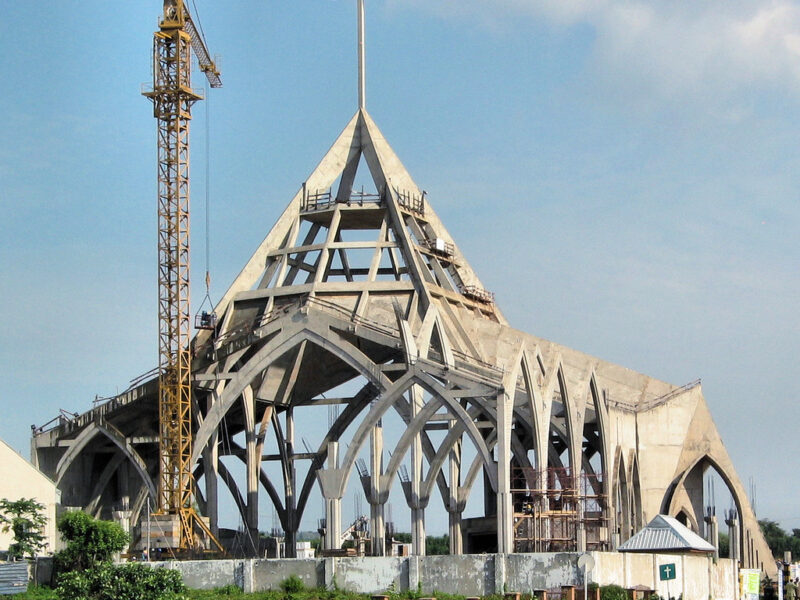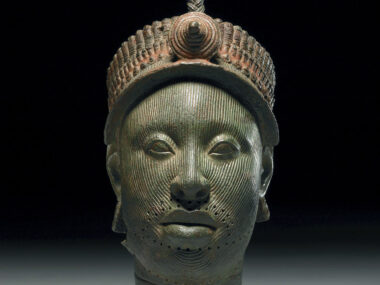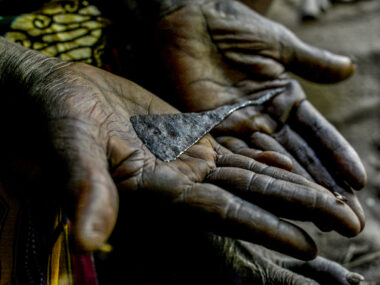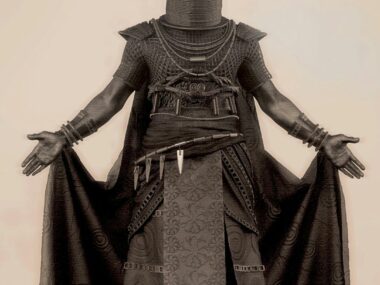Nigeria, often referred to as the “Giant of Africa,” is a nation characterized by its diverse cultures, languages, and religions. The country’s religious landscape is predominantly shaped by Christianity, Islam, and traditional African religions, each of which has left an indelible mark on Nigerian culture. This essay explores the religious practices of these major faiths and their profound influence on various aspects of Nigerian society, including social norms, legal systems, festivals, and daily life.

The Religious Landscape of Nigeria
Nigeria’s religious demography is roughly split between Islam and Christianity, with each religion claiming significant followings across different regions. Islam is predominantly practiced in the northern part of Nigeria, while Christianity is more prevalent in the southern and central regions. Traditional African religions, although less prominent, still play a crucial role in the cultural practices and spiritual lives of many Nigerians.
Islamic Practices and Their Cultural Influence
Islam was introduced to Nigeria through the trans-Saharan trade routes by Arab merchants as early as the 11th century. The religion gained significant ground with the establishment of the Sokoto Caliphate in the early 19th century, which unified various Hausa-Fulani states under Islamic rule. Today, Nigeria has the largest Muslim population in sub-Saharan Africa.
1. Social and Legal Systems:
Islamic practices heavily influence the social norms and legal systems in northern Nigeria. Sharia law, which is derived from the Quran and Hadith, governs many aspects of life in this region, including marriage, inheritance, and criminal justice. The implementation of Sharia law has led to the establishment of Sharia courts, which adjudicate matters based on Islamic principles.
2. Festivals and Celebrations:
Islamic festivals such as Eid al-Fitr, which marks the end of Ramadan, and Eid al-Adha, commemorating the willingness of Ibrahim (Abraham) to sacrifice his son, are widely celebrated in Nigeria. These festivals are marked by communal prayers, feasting, charity, and the sharing of meat with family, friends, and the less fortunate. The observance of these festivals fosters a sense of community and reinforces Islamic values of charity and compassion.
3. Daily Life and Rituals:
Daily prayers (Salat) performed five times a day are a cornerstone of Islamic practice and influence the daily routines of Nigerian Muslims. The call to prayer, broadcast from mosques, structures the day and provides a rhythm to communal life. Fasting during the month of Ramadan is another significant practice that affects social and economic activities, with businesses often adjusting their hours to accommodate fasting and prayer times.
Christian Practices and Their Cultural Influence
Christianity was introduced to Nigeria through Portuguese missionaries in the 15th century and gained widespread acceptance with the arrival of British missionaries in the 19th century. Today, Nigeria’s Christian population includes various denominations, with the largest being Catholic, Anglican, Pentecostal, and Baptist churches.
1. Social Norms and Values:
Christianity has profoundly influenced social norms and values, particularly in the southern and central regions of Nigeria. Churches play a central role in community life, providing not only spiritual guidance but also social services such as education, healthcare, and charitable support. Christian teachings emphasize values such as love, forgiveness, and community service, which shape interpersonal relationships and social expectations.
2. Festivals and Celebrations:
Christian festivals such as Christmas and Easter are major cultural events in Nigeria. Christmas is celebrated with church services, family gatherings, feasting, and the exchange of gifts. Easter, commemorating the resurrection of Jesus Christ, is marked by church services, processions, and communal meals. These celebrations are not only religious observances but also cultural festivals that bring together families and communities.
3. Influence on Music and Arts:
Christianity has significantly influenced Nigerian music and arts. Gospel music, which blends traditional African rhythms with Christian themes, is immensely popular and plays a vital role in both religious worship and entertainment. Churches often host musical events, and gospel artists are celebrated figures in Nigerian society. Christian themes are also prevalent in Nigerian literature, theater, and visual arts, reflecting the integration of religious beliefs with cultural expression.
Traditional African Religions and Their Cultural Influence
Despite the dominance of Islam and Christianity, traditional African religions continue to play a vital role in Nigerian culture. These religions are diverse and vary among ethnic groups, but they generally emphasize the worship of ancestors, spirits, and deities associated with natural elements.
1. Rituals and Festivals:
Traditional African religions are rich in rituals and festivals that celebrate various aspects of life, nature, and the agricultural calendar. For example, the New Yam Festival, celebrated by the Igbo people, is a significant event that marks the end of the farming season and honors the earth and ancestral spirits. These festivals involve elaborate ceremonies, music, dance, and communal feasting, reinforcing social cohesion and cultural identity.
2. Healing and Medicine:
Traditional religious practices often include rituals and herbal medicine used for healing and protection. Traditional healers, known as “Babalawo’s” among the Yoruba and “Dibia’s” among the Igbo, are respected figures who provide spiritual and medical services to their communities. These practices are based on the belief in the interconnectedness of physical and spiritual health and the power of ancestral and natural spirits.
3. Influence on Social Structure:
Traditional African religions influence social structures by establishing norms and taboos that govern community life. For instance, many communities have sacred groves, rivers, or mountains where specific rituals are performed, and certain behaviors are prohibited. These sacred sites play a crucial role in environmental conservation and the preservation of cultural heritage.
Interfaith Relations and Cultural Integration
Nigeria’s religious diversity has led to complex interfaith relations. In some regions, religious coexistence is harmonious, with interfaith dialogue and cooperation on social and community projects. However, in other areas, religious differences have been a source of tension and conflict, exacerbated by ethnic, political, and economic factors.
Efforts to promote interfaith harmony include initiatives by religious leaders and organizations to foster mutual understanding and respect. Interfaith marriages, though challenging, are also a testament to the possibility of cultural integration and coexistence.
Conclusion
Religious practices have a profound influence on Nigerian culture, shaping social norms, values, festivals, and daily life. Islam, Christianity, and traditional African religions each contribute to the rich tapestry of Nigerian society, offering diverse perspectives on spirituality and community. While these religious traditions sometimes lead to conflict, they also provide opportunities for cultural exchange and mutual enrichment.
As Nigeria continues to navigate its complex religious landscape, the emphasis on respect, tolerance, and understanding among different faith communities will be crucial in fostering a cohesive and vibrant society. The interplay between religion and culture in Nigeria highlights the enduring power of faith to shape individual and collective identities, providing a foundation for both continuity and change.










